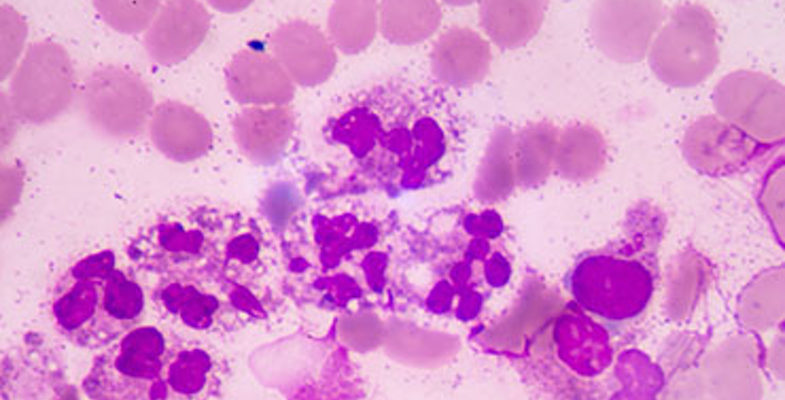Diagnostic cytopathology in the UK 2020
A UK-wide survey of diagnostic cytopathology was conducted in 2020, to provide the College, the British Association for Cytopathology, Institute of Biomedical Science and the Conjoint Board for Cytology with a comprehensive picture of the practice and reporting of all types of diagnostic cytopathological specimens in the UK.
The individuals responding were asked to ensure that all those who report cytopathology outside of the cervical screening programme (i.e. cytopathology often referred to as diagnostic or non-gynaecological cytopathology) were included in the responses where relevant.
No such data collection has been performed before and the results of this survey are intended to become a baseline for future cytopathology data collections.
The results of this survey will help facilitate discussions about current and future cytopathology service provision, as well as help shape cytopathology education and training.
Key findings
The combined response rate to our survey for the UK was 55%, with the response rate for England the highest at 89%. The individual devolved nations were much lower with a response rate of 5% for Scotland, 4% for Wales and 1% for Northern Ireland. The timing of the survey was during the COVID-19 pandemic, which may have affected the response rate.
All the data that was requested was from the calendar year 2019, so would not have been affected by variations in workload or practice brought about by the pandemic. Despite these limitations, the data does provide a snapshot of cytopathology practice in the UK. It shows much commonality of practice, but does also highlight variation, albeit based on an overall 55% response rate.
The survey highlighted that cytology samples are mostly reported by general cellular pathologists and not by specialised cytopathologists. Only 5.5% of the pathologists who responded identified themselves as cytopathologists.
Approximately 25% of biomedical scientist (BMS) staff were planning to sit either the Diploma in Extended Practice (DEP) or Advanced Specialist Diploma (ASD) in cytopathology. The future model of cytopathology must factor this in and ensure sufficient material for training, education and maintaining competence for all staff involved in cytopathology service provision.
The following findings emerged from the data. As of September 2020:
- 28% of pathologists reporting on cytology samples are over 55 years of age.
- The cytopathology workload in the UK (based on survey findings and if pro-rated up) is approximately 402,000 samples per year.
- H&E staining is still in use for some sample types despite it not being advocated as a cytology stain for many years and its use going against College guidance.
- 38% of laboratories offer a rapid onsite evaluation (ROSE) service.
- Less than 45% of laboratories perform analysis for targeted therapies on cytology samples, i.e. IHC, FISH, single gene analysis.
- 80% of laboratories had trainee pathologists rotating through their department.
It is intended that this survey will be repeated during 2022, to help us build on the data from this survey, acting as a baseline that can help assess any possible changes in service delivery. Future surveys will allow us to assess the implementation of relevant guidance and reporting systems, with greater refinement of questions.

